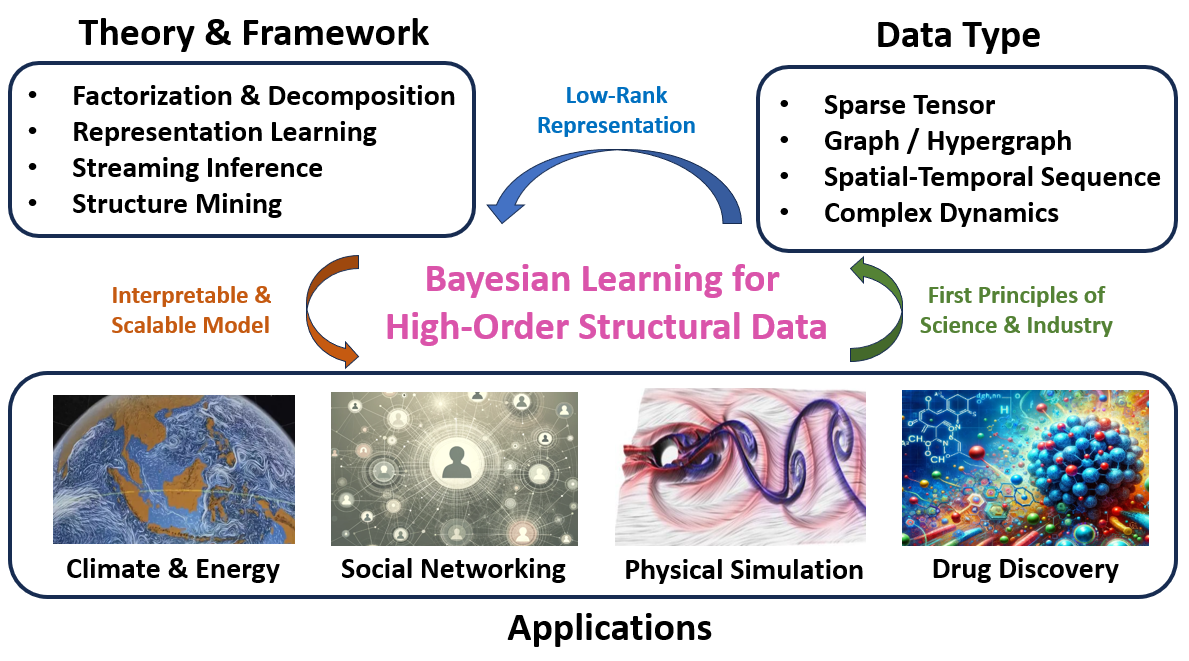Bayesian Learning for High Order Data
Bayesian Learning for High Order Data
Overview
Bayesian learning provides a principled framework for uncertainty quantification and model selection in high-dimensional data analysis. This research direction focuses on developing scalable Bayesian methods for tensor data and high-order interactions.
Key Research Areas
1. Tensor Decomposition with Bayesian Priors
- Objective: Develop Bayesian tensor decomposition methods that incorporate domain knowledge through structured priors
- Challenges: Scalability for large-scale tensors, choice of appropriate priors
- Applications: Recommender systems, neuroimaging data analysis, social network analysis
2. Uncertainty Quantification in Tensor Models
- Objective: Provide reliable uncertainty estimates for tensor-based predictions
- Methods: Variational inference, Markov Chain Monte Carlo (MCMC)
- Benefits: Robust decision making, model interpretability
3. Scalable Bayesian Inference
- Objective: Develop efficient inference algorithms for large-scale tensor data
- Techniques: Stochastic variational inference, distributed computing
- Impact: Enables Bayesian analysis of real-world large datasets
Research Roadmap
Phase 1: Foundation (Months 1-6)
- Literature review of existing Bayesian tensor methods
- Development of basic Bayesian tensor decomposition framework
- Implementation of baseline methods
Phase 2: Innovation (Months 7-12)
- Design of novel prior structures for tensor data
- Development of efficient inference algorithms
- Theoretical analysis of convergence properties
Phase 3: Application (Months 13-18)
- Application to real-world datasets
- Performance evaluation and comparison
- Publication of results
Technical Approach
Our approach combines:
- Probabilistic modeling: Bayesian framework for uncertainty quantification
- Tensor algebra: Efficient computation with tensor operations
- Variational inference: Scalable approximation methods
- Domain-specific priors: Incorporation of expert knowledge
Expected Outcomes
- Novel algorithms: Scalable Bayesian tensor decomposition methods
- Software package: Open-source implementation
- Theoretical contributions: Convergence analysis and error bounds
- Applications: Real-world case studies demonstrating effectiveness
Related Work
- Bayesian CP decomposition
- Probabilistic tensor factorization
- Variational inference for tensors
- Uncertainty quantification in deep learning
This research direction aims to bridge the gap between theoretical Bayesian methods and practical applications in high-dimensional data analysis.

